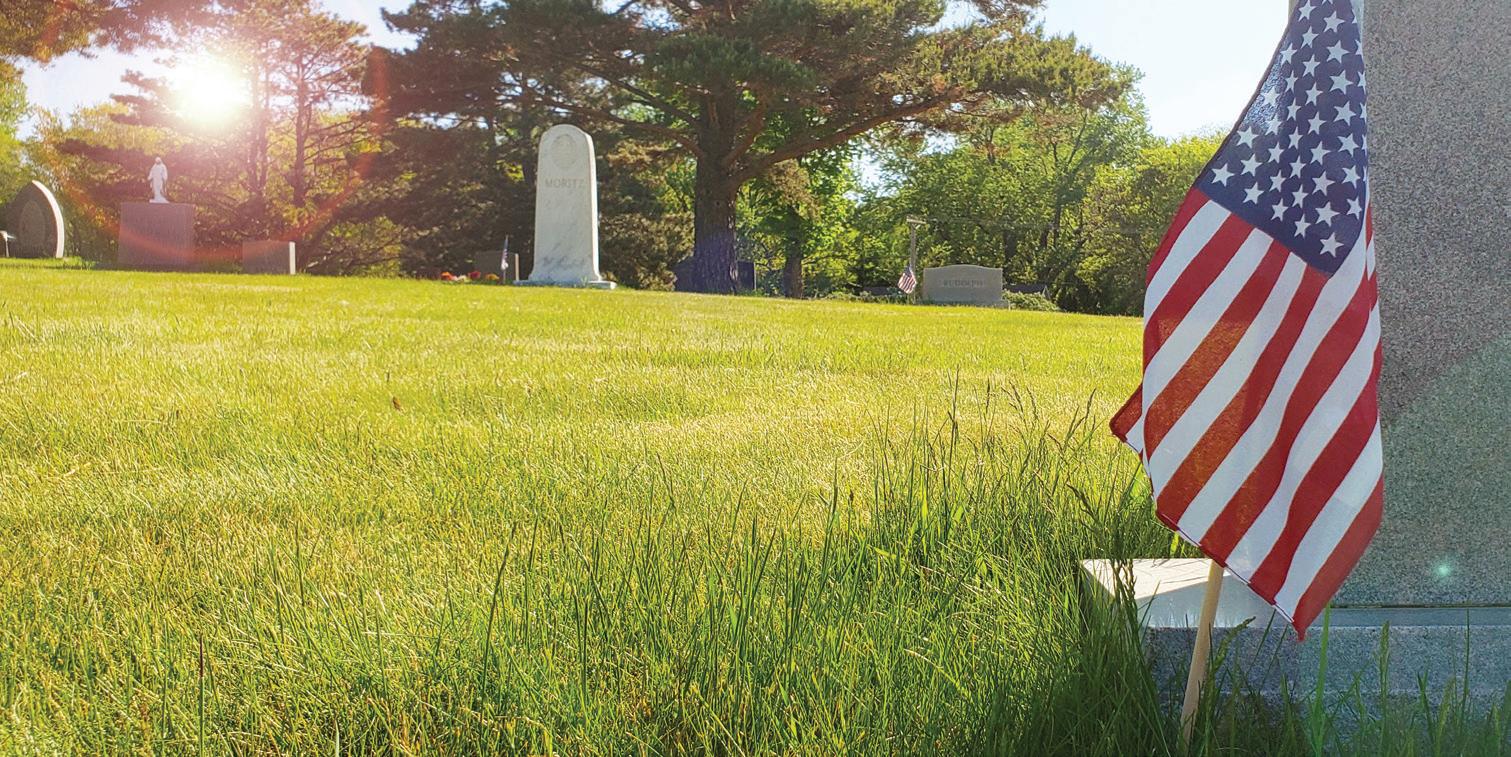
3 minute read
Like songbirds set free
I saw a remarkable video involving birds being set free the other day, ironically on the “bird app,” aka Twitter.
Allow me to set the scene: A streetside vendor with a cage full of songbirds stoops alongside an SUV with its windows down. A sun-glassed man is sitting in the passenger side front seat. He has apparently just purchased a number of the songbirds in the cage, perhaps all of them. One after another, the vendor takes a single bird from the cage and places it in the hand of the man in the SUV — and one after another, the sunglassed man casually releases the just-purchased songbird — without ever even looking up from the vendor he’s dealing with! — allowing the now-released bird to flutter skyward to freedom.
Advertisement
As an act of kindness to animals, the scene is obviously a compelling one. A man purchases songbirds from a caged life, not so he can hold them captive in his own house, but so they can be free.
Call me overly spiritual, but I also want to suggest that this scene of songbirds set free paints a passed a law in 1963 prohibiting other groups from using the title. The Minneapolis program was renamed Operation Neighbor Corps, but its efforts to give high school students summer service opportunities and leadership training continued to expand. By the 1980s, ON Corps had provided more than 6,000 Catholic high school students in the Twin Cities with leadership and service experiences that would shape their faith and futures. For some, they inspired careers in education, social work or even international relations.
ON Corps was one of many programs offered for teenagers and young adults at the Catholic Youth Center in Minneapolis. During the school year, retreats, weekend seminars and study groups were designed to help high school students integrate Catholicism with daily living while learning leadership skills. The Saturday Nighters program compelling image of Christ’s intervention in our own lives.
Locked in the cage of our own sins, and incapable of escaping on our own, Christ ransoms us. Indeed, he is the only one who can pay the price — the only one who has something that can cover the cost of our well-earned captivity, and the only one among us free to offer it.
Like the man in the video, Jesus pays for our release, not so he can hold us captive, but precisely so that he can liberate us from anything that restricts our flourishing. “For freedom Christ has set us free” (Gal. 5:1). Of course, this freedom isn’t a license to simply fly into the void of the sky, doing whatever we want. Our true freedom, in actuality, is friendship with Christ, because relationship with God is what we are made for. “I no longer call you slaves … I have called you friends” (Jn 15:15).
When I suggested this “Christological” reading of the bird video on Twitter, someone commented that it was all a trick. That the songbirds had been conditioned to fly back to the vendor and his cage. Thus, even though they’ve been freed, it’s been habituated in them to prefer captivity. If true, the implication was that this somehow lessened the significance of the man’s purchase and subsequent release of the songbirds. If they were likely to fly back to captivity, who cares?
But rather than lessen the Christological quality of the scene, I think it heightens it. God frees us from our sins knowing full well that, in the very near future, there is the possibility that we will spurn our newfound friendship with him and return to the cage of sin. Like the conditioning of the birds even after supported high school graduates to continue to live these values in small communities. Members often became mentors in the high school programs and volunteered at fundraisers that benefited ON Corps. they’ve been freed, the effects of sin still plague us, including our habits of choosing ourselves over God and others.
CYC’s home for all of these programs was a mansion at 2120 Park Ave. in Minneapolis, built in 1902 for Franklin Crosby, a leader in the Minneapolis flour business. After the CYC closed in 1994, Abbott Northwestern Hospital and the Archdiocese of St. Paul and Minneapolis reached an agreement to turn it into a center for AIDS patients in 1995. Today, the house is home to some of People Incorporated’s mental health services.
Luiken is a Catholic and a historian with a doctorate from the University of Minnesota. She loves exploring and sharing the hidden histories that touch our lives every day.

Our freedom was never about our own strength and effort anyway. It’s about the relentless mercy of Christ.
But God doesn’t offer his mercy because we’re perfect. He offers it because he loves us. And he will never cease offering it, even as we struggle with our sins and our selfish habits that lead us back to them.
This can be an especially important message to hear at this stage of the Easter season. The euphoria of the Resurrection has somewhat faded, and we can be faced with the recognition that — despite Christ’s victory over death and sin — we are still prone to live the old life, not the new.
This can be frustrating and disheartening. But our freedom was never about our own strength and effort anyway. It’s about the relentless mercy of Christ. He is like the man who purchases songbirds from a streetside vendor, just to set them free. Except unlike the man in the SUV, Christ never runs out of what frees us, and he never tires of paying the cost.









